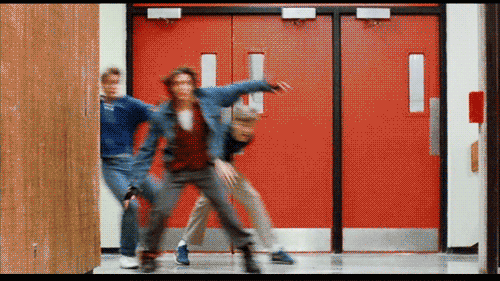I’ve been blogging about critique partners for the past few months.
In January I discussed where to find critique partners, in February I covered
what types of critique partners to look for and last month I blogged about how
to give good critiques. This month, I’m going to address the opposite and
discuss some common critiquing pet peeves; otherwise knows as: how to make sure
I’ll never ask you to read for me again.
Let me preface this by saying my critique partners do not do any of
these thing, which is why they are wonderful and amazing and will earn
acknowledgments in all of my books.
That said, I have had a lot of people read
for me and there are definite things that always pushed my buttons, despite the
fact that I was grateful for the time and energy they put into reading for me.If you are planning to critique for anyone in the future, you make
want to take care to avoid:
Only pointing out the bad.
Yes, I asked for a critical eye on my work and I desperately want to know what isn’t working, so I can fix it. But toss a girl a bone! It’s also incredibly helpful for me to know what is working so I don’t accidentally cut it. Help me make my manuscript better—versus worse—by pointing out the things you like, whether it be a character name that fits the traits of the person well, a line that made you laugh, or a subplot that left you breathless.
As much as it thrills me to know that you loved every word of my
messy first draft, I’m going to have a hard time believing it. I’m relying on
you to be fresh eyes for me on something I’m too involved with to see
objectively. I appreciate that you took the time to read, but you’ve somewhat
wasted mine in not offering any thoughts for improvement because I now have to
track down another reader to point me in the right direction.
And this last one really
makes me grind my teeth:
I once had someone read for me who made giant x’s on full pages of
my manuscript and took it upon herself to delete a whole chapter in track
changes. She also rewrote a ton of paragraphs, including the entire opening.
I’m perfectly fine with a suggestion to “think about improving pacing by
cutting this chapter” or “Show us this in a scene versus telling us in
backstory” but it really grated my nerves that she went in and did it for me. In
fact it bothered me so much that I now refuse to delete a single word from a
CPs manuscript unless it’s a typo. I mark it in comments instead. Good CPs will
say, “Here are my thoughts. Take any that resonate with you and ignore the
rest!” and let the author decide for herself whether the suggestion is in line
with her vision for the book or not. You might have clear ideas for how you
could make this book sooo much better, but in the end you’ll be more valuable
as a CP by recognizing that it’s only your opinion to offer and not your story
to write.
What about you? Share your horror stories here or tell us what
really pushes your buttons on the receiving end of a critique.


















